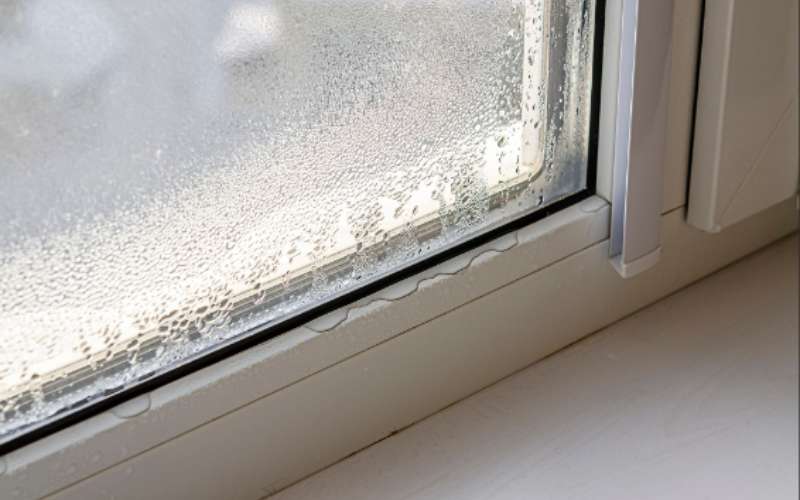Are your windows showing signs of age or damage? Identifying the signs you need to replace your home’s windows can save you from costly repairs. Many homeowners ignore the early signs, like drafts or condensation, only to face bigger problems later. Discover how recognizing these signs early can help you maintain a comfortable, energy-efficient home.
How to Know When It’s Time to Replace Your Windows
Windows play a vital role in your home’s comfort and energy efficiency. Over time, however, windows can deteriorate, causing several issues. Recognizing the signs you need to replace your home’s windows can help you avoid bigger problems down the road. Here are the key signs to watch out for:
1) Drafts and Increased Energy Bills
One of the most common signs that you need new windows is an unexplained draft in your home. If you notice a cold breeze even when your windows are closed, it could be due to gaps or leaks. Drafts often result from worn-out seals or aging window frames. These gaps allow air to escape, making it harder to keep your home warm in the winter and cool in the summer. Consequently, you might see an increase in your energy bills as your heating and cooling systems work overtime to compensate. Replacing old windows with energy-efficient ones can reduce your energy consumption and lower costs.
2) Difficulty Opening or Closing Windows
Windows that are hard to open or close are more than just an inconvenience; they could be a safety hazard. This problem might be due to warped frames, which occur with age or exposure to moisture. It could also be because of faulty springs or balance systems in certain types of windows. If your windows stick, don’t stay open, or are difficult to lock, it’s a clear sign that they need replacing. Properly functioning windows are essential for ventilation and security.
3) Visible Damage or Decay
Over time, windows can suffer from visible damage like cracks, chips, or even decay. Wooden frames are especially vulnerable to rot due to moisture exposure. If you notice peeling paint, warped frames, or signs of water damage around your windows, these are signs that you need to replace your home’s windows. Ignoring these problems can lead to more extensive damage, including mold growth, which can affect your health.
4) Condensation Between Window Panes
Condensation can occur on windows for many reasons, but when it appears between the panes of double- or triple-glazed windows, it’s a red flag. This type of condensation indicates that the window’s seal has failed, allowing moisture to enter. Broken seals affect the window’s insulating properties, leading to heat loss and energy inefficiency. If you see fog or condensation between window panes, it’s time to think about replacement.
5) Outside Noise Becoming More Noticeable
Windows are meant to keep out not only the elements but also noise. If you’ve started to notice more noise from outside traffic or your neighbors, it could mean your windows are no longer providing adequate insulation. Older windows, especially single-pane ones, do not offer the same soundproofing benefits as modern, double- or triple-pane windows. Replacing them can create a quieter, more peaceful living environment.
6) Outdated Appearance and Poor Curb Appeal
The appearance of your windows can significantly impact the overall look of your home. If your windows are outdated, faded, or mismatched, they can reduce your home’s curb appeal. New windows can enhance the aesthetic value of your home, making it more attractive to potential buyers if you plan to sell. Choosing a modern, energy-efficient design can offer both style and functionality.
7) Water Leakage Around Windows
Water stains or damp patches around windows are clear indicators that water is seeping in through gaps or cracks. Persistent leaks can lead to structural damage, mold, and mildew problems. To prevent these issues, consider replacing windows that allow water infiltration.
8) Windows That Don’t Block UV Rays
Older windows may not offer sufficient UV protection, which can lead to fading of furniture, carpets, and curtains. Modern windows with UV coatings help protect your interior from sun damage. If you notice your interior items fading more quickly, it might be time to upgrade to UV-protective windows.
Replacing your home’s windows might seem daunting, but it is a necessary step to improve comfort, safety, and energy efficiency. Understanding the signs you need to replace your home’s windows can help you make an informed decision and keep your home in optimal condition.
Ready for New Windows? Contact Us Today!
If you’ve noticed any of these signs you need to replace your home’s windows, it’s time to take action. Don’t let old or damaged windows affect your comfort and energy bills. Contact us today for a free consultation and learn how new windows can enhance your home’s safety and efficiency.

